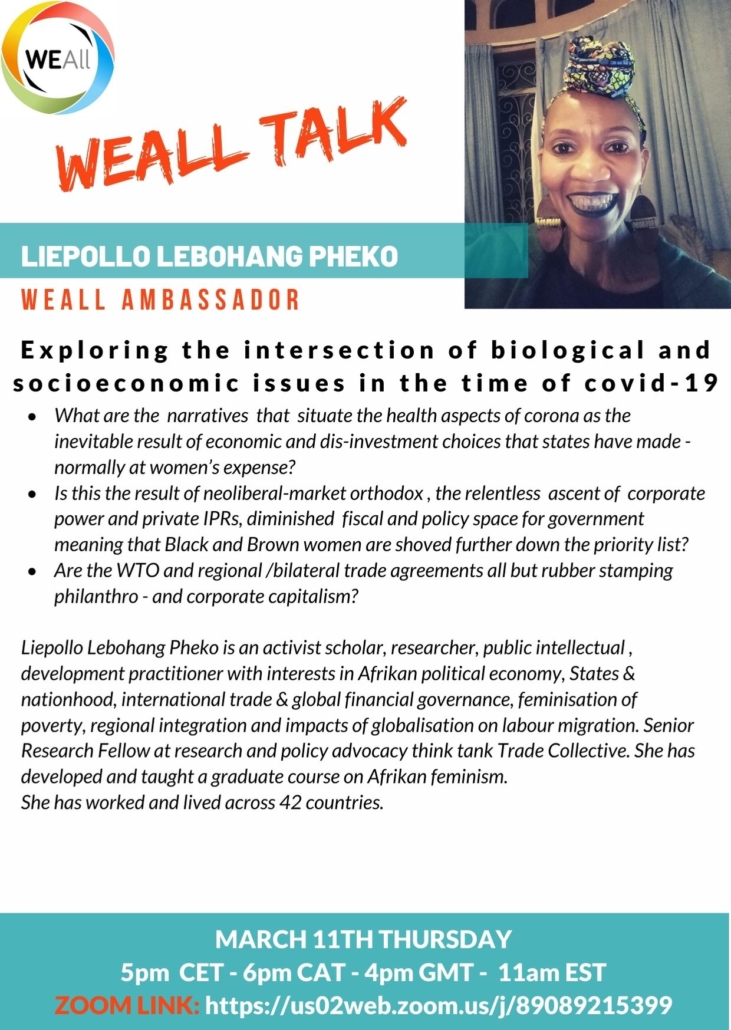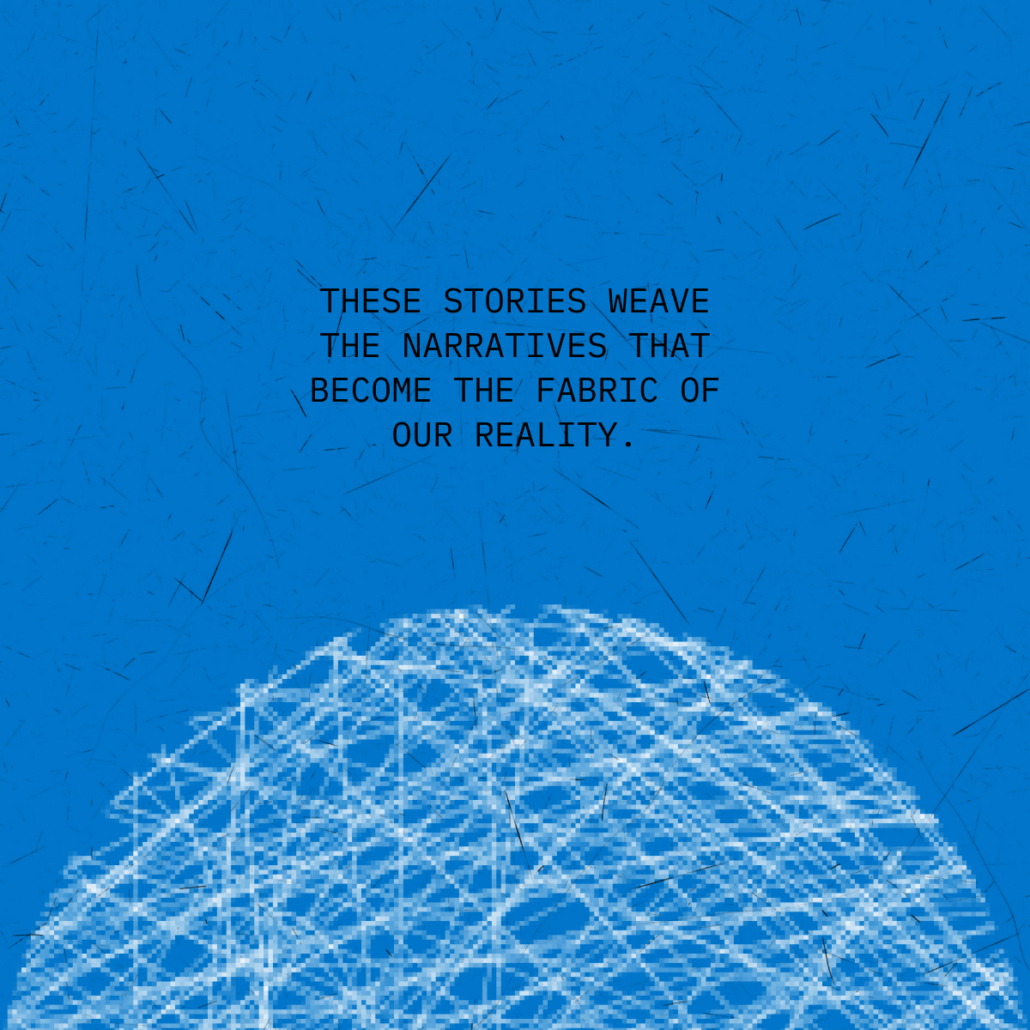This website uses cookies so that we can provide you with the best user experience possible. Cookie information is stored in your browser and performs functions such as recognising you when you return to our website and helping our team to understand which sections of the website you find most interesting and useful.
As part of our work to amplify the important work in the Wellbeing Economy movement, these WEAll Weekly Update blogs will share some of the latest and greatest updates from our membership and beyond. Please use the comment box to share any relevant updates from this week and keep the conversation going!
Weekly Reads

L’Internationale Online
“This collection draws upon the complexity of ethical, ecological and political frameworks and reveals other perspectives on the current crisis through critical essays, storytelling, science fiction, biomorphic design, audiovisual traces of artistic practices and allegorical maps”
Budget 2021: Five priorities for a green and fair economic recovery | APPG letter to the Chancellor, 1 Mar 2021
“Every decision that the Treasury makes should be through a climate, nature and equality lens, and this budget must be the start.”
Regenerative Agriculture White Paper Sets Out Pressing Research Priorities
“The white paper is the result of intensive collaboration and consultation with more than 200 people from June to November 2020. Collaborators include farmers and growers, researchers, primary industry bodies, banks, retailers, non-governmental organisations, government departments, large corporates, consultants, marketers, overseas researchers and educators.”
Why Understanding & Embracing Suffering is Important to Flourishing and Fundamental Peace
“The key message is simple – it is neither necessary nor desirable to eliminate human struggles and frailties to pursue a flourishing human life. Creating a proper attitude and response to our limitations, challenges, and suffering is the best way to a flourishing life.”
Relationship-to-Profit: A Theory of Business, Markets, and Profit for Social Ecological Economics – Jennifer Hinton
“The result is a new theory about how relationship-to-profit (the legal difference between for-profit and not-for-profit forms of business) plays a key role in the sustainability of an economy, due to the ways in which it guides and constrains actors’ behavior, and drives larger market dynamics.”
21st Century Sustainable Enterprise Force Field
“The desired state for a company is being a truly sustainable enterprise that partners with other organizations to lead society to a more just, safe, healthy and resilient future. The 21st century sustainable enterprise force field is a dashboard of sustainability-related forces that affect companies”
UNCTAD Technology and Innovation Report 2021
Human development has been spurred by changes in technology. But so has inequality. Today’s staggering inequalities began to appear with the industrial revolution. The pace of technological change is accelerating due to digitalization and frontier technologies. New technologies can have severe downsides if they outpace a society’s ability to adapt.
2019/2020 Action Plan For The Office of The Youth Envoy (OYE)
“The Youth Envoy mission is to lead advocacy and champion youth agency in the prioritization of youth issues within continental, and other decision-making and
governance spaces.”
Beyond Race and Rota (January 2021) It Takes a System- The Systemic Nature of Racism and Pathways to Systems Change
There are three central pillars to race thinking as a mental model. The first pillar is that humanity can be differentiated along the lines of the category called ‘race’. The second is that there exists a racial hierarchy in which being white is the highest form of humanity. The third is that populations racially minoritised as ‘other than’ white are deeply and irreversibly biologically and/or culturally flawed. In other words, the racial order is largely fixed.
Job Openings & Opportunities

- Feminist Graphic Designer
- Projects Officer – World Fair Trade Organization
- Call for Submissions: Green Recovery Climate Exp0
- Call For Papers: Sustainability and social innovation in a time of climate and biodiversity emergency
- Executive Director – Jubilee Debt Campaign
- Share a story: “Stories for 2050” From European Commission
- Global Health Impact Producer – The Bureau of Investigative Journalism
- Training Delivery Manager – Campaign Bootcamp
- Fellowships Manager – The Finance Innovation Lab
What to Watch
- WEAll Talk: Making Systems Change Happen with Irene Guijt & Ruth Mayne
- Peter Victor: Slower by design not disaster. managing without growth
- How the fashion industry is turning to forests for the fibres of the future | Rethink Sustainability
- Commencing 36×36!
- r3.0 Conference 2020 Keynote Jean Russell
- The Story of The Global South– TEDxGRC Possible Futures
- Why the Future Economy has to be a Wellbeing Economy | Katherine Trebeck |- Response Video
- Capitalism: What’s Our Exit Strategy?
- Wonderspace Episode 20 feat. Katherine Trebeck
- Children’s Wellbeing Budgeting with Jennifer Wallace
Listen Up
- Decolonising Design Thinking– The Conversation Factory
- Health, justice and the environment – the core issues– FEASTA
- The SuperNova Podcast – Lena Ski
- From green privilege to green gentrification– Shareable
- Debunking the myth of Homo Economicus – Upstream Podcast via Shareable
Upcoming Events

- March 18: WEAll Policy Design Guide Launch Event
- March 3-20: What Next Summit – Transition Network
- March 9: Living well within limits: How can the Economy of Wellbeing approach tackle climate change?
- March 10: Alternative enterprise models for sustainable fashion – CUSP
- March 10: WEAll Read Deepdive: Alternative perspectives on missions with Matthew Ford
- March 10: Learn How To Make Your Business More Sustainable – Free Online Workshop
- March 10: Exploring Invisible Women Syndrome – Cities@Tufts

- March 11: WEAll Talk: “Exploring the intersection of biological and socioeconomic issues in the time of COVID-19” with Liepollo Lebohang Pheko
- March 18- 23: World Happiness Fest
- March 21: How Money Was Created with Steve Keen
- March 24: WEAll Citizens Science Project: Measuring the Wellbeing Economy
- March 24: Learn How To Make Your Business More Sustainable
- March 30: WEAll Talk “36×36 Fostering a Femxle-Led Economic Revolution” with Amanda Janoo
- April 27 & 28: SEWF 2021
- May 17- 21: #ClimateExp0 Conference
- May 19 & 20: Impact Summit – FutureX
- Next Economy MBA “Meet the Instructors” – LIFT Economy
- Regeneration Pollination “Speed Networking” Events – the Global Regeneration CoLab
WEAll Originals
Blogs:
- Stories for Life
- Commencing 36×36!
- The Least Popular Buzzwords of 2020
- How do we ensure a Wellbeing Economy is inherently antiracist?
- A ‘Market for Values’ as an instrument for human and ecological wellbeing – Marco Senatore
- Village in the City – Building micro-local community around the world – a WEAll ‘Wellbeing Economy Correspondents’ Blog
- What might social media look like in a Wellbeing Economy?
- The 2021 Wellbeing Economy Reading List
Publications:

- Stories For Life
- Wellbeing Economy Messaging Guide– Positive Money, PIRC, NEON, and WEAll
- Measuring Wellbeing, Rutger Hoekstra
- Business in the Wellbeing Economy, Olga Koretskaya & Gus Grosenbaugh
From the Archives
- 10 Principles to Build Back Better
- Rebuilding to a US Wellbeing Economy
- What is a Wellbeing Economy?
- The Business of Wellbeing Guide
the discussion?
Let us know what
you would like
to write about!

